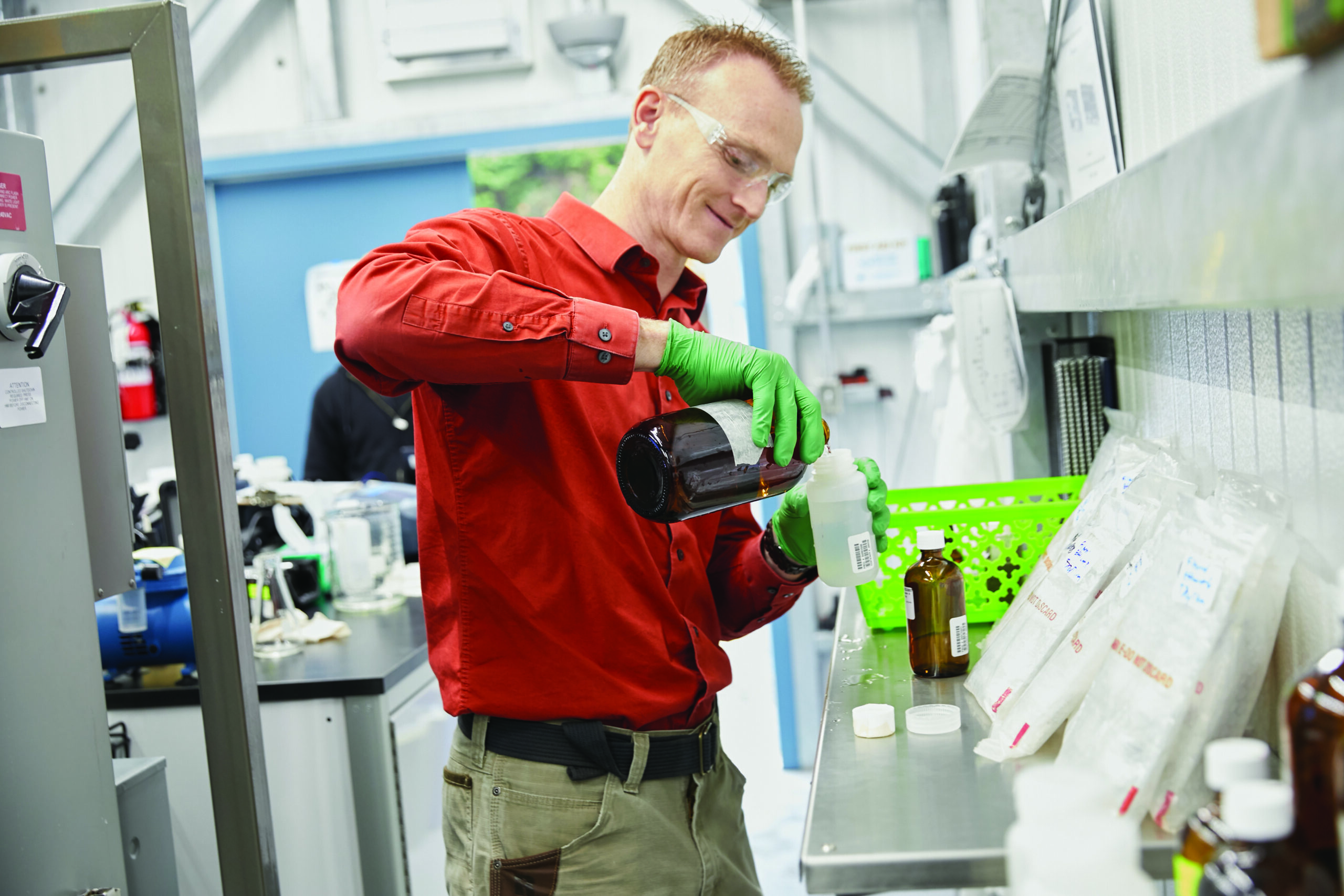PROTEC17 members Humberto Piedra-Ruiz and Mac Gifford are part of a team at the City of Portland’s Water Bureau who keep water safe and drinkable for nearly one million Portland residents. In addition, they are part of a historic water filtration project that is setting the stage for the future of clean water.
The Bull Run Filtration Project is unique in that it is using a pilot treatment facility to help design a full-scale facility that will be built from the ground up, as opposed to working around pre-existing constraints. The pilot is a 1:5,000 scale model being used as a prototype to explore what works best for water treatment, and to train staff on cutting-edge equipment and technologies. So far, the pilot facility has collected over 3,000 lab samples and treated over 17 million gallons of water.
“In this facility, we’ve been able to demonstrate that we can achieve valuable water quality benefits which will directly improve public health,” said Mac Gifford, Engineer II and Operations Lead for the Bull Run Pilot Project.
Gifford, who’s been with the Water Bureau since 2017, is proud of the work he and his colleagues are doing to protect this invaluable drinking water resource, and how they use science and engineering to meet today’s challenges.
“As stewards of public resources, we have an opportunity to make real changes that affect humankind and benefit our City’s residents,” he said.
Civil Engineering Associate Piedra-Ruiz is also really proud of his contributions to this important work. He has a hand in every aspect of the project, from serving as the Safety Coordinator, to supporting each project manager, and ensuring treatment approval from the Oregon Health Authority.
Growing up in rural Mexico, Piedra-Ruiz began to recognize the immense importance of having reliable access to clean water. Later, while deployed in Iraq with the U.S. Army, and when volunteering with Engineers Without Borders, his additional experiences with water – or lack of water – helped shaped his passion for this work.
“Providing access to safe and reliable drinking water for my community is a way that I can directly, and positively, contribute to our society,” said Piedra-Ruiz.
Both Piedra-Ruiz and Gifford say they love constantly learning on the job, and appreciate that they’re able to use their science and engineering skills for the public good.
“I love being able to use science and engineering to inform important decisions. Even more importantly, what I’m doing will benefit the lives and public health of people for generations to come,” said Gifford.
The final Bull Run Filtration Facility is expected to be fully operational by September 2027.


